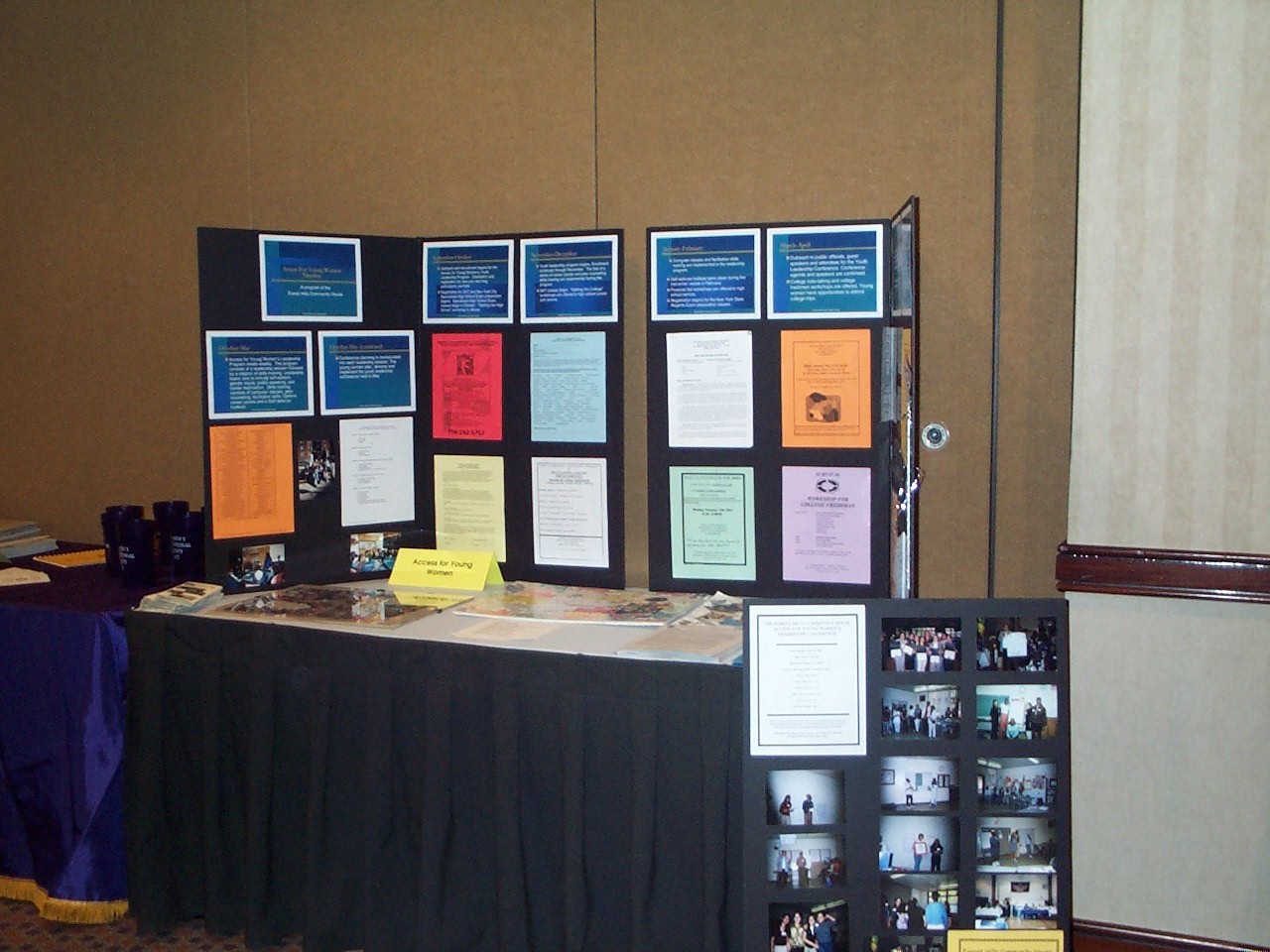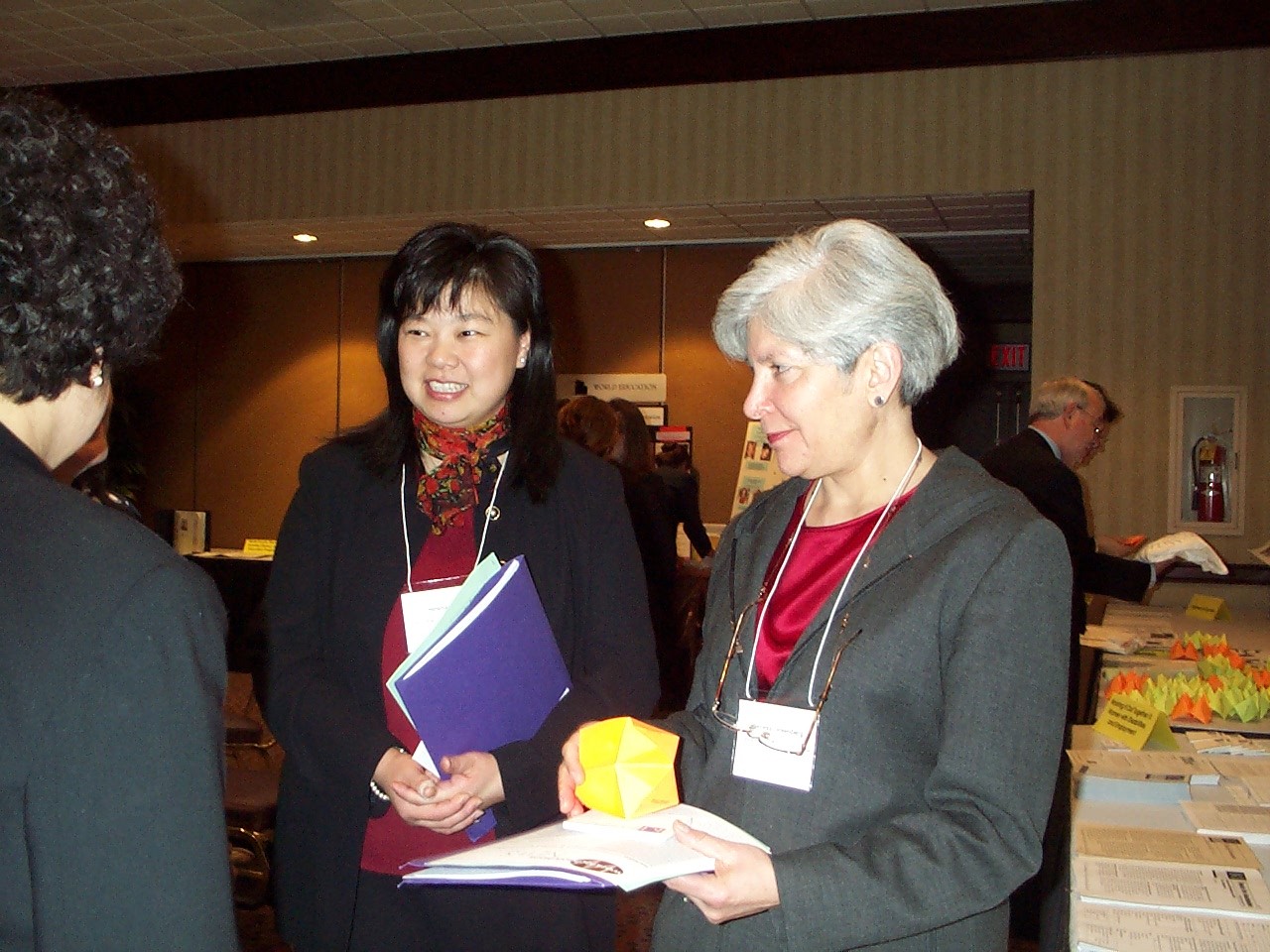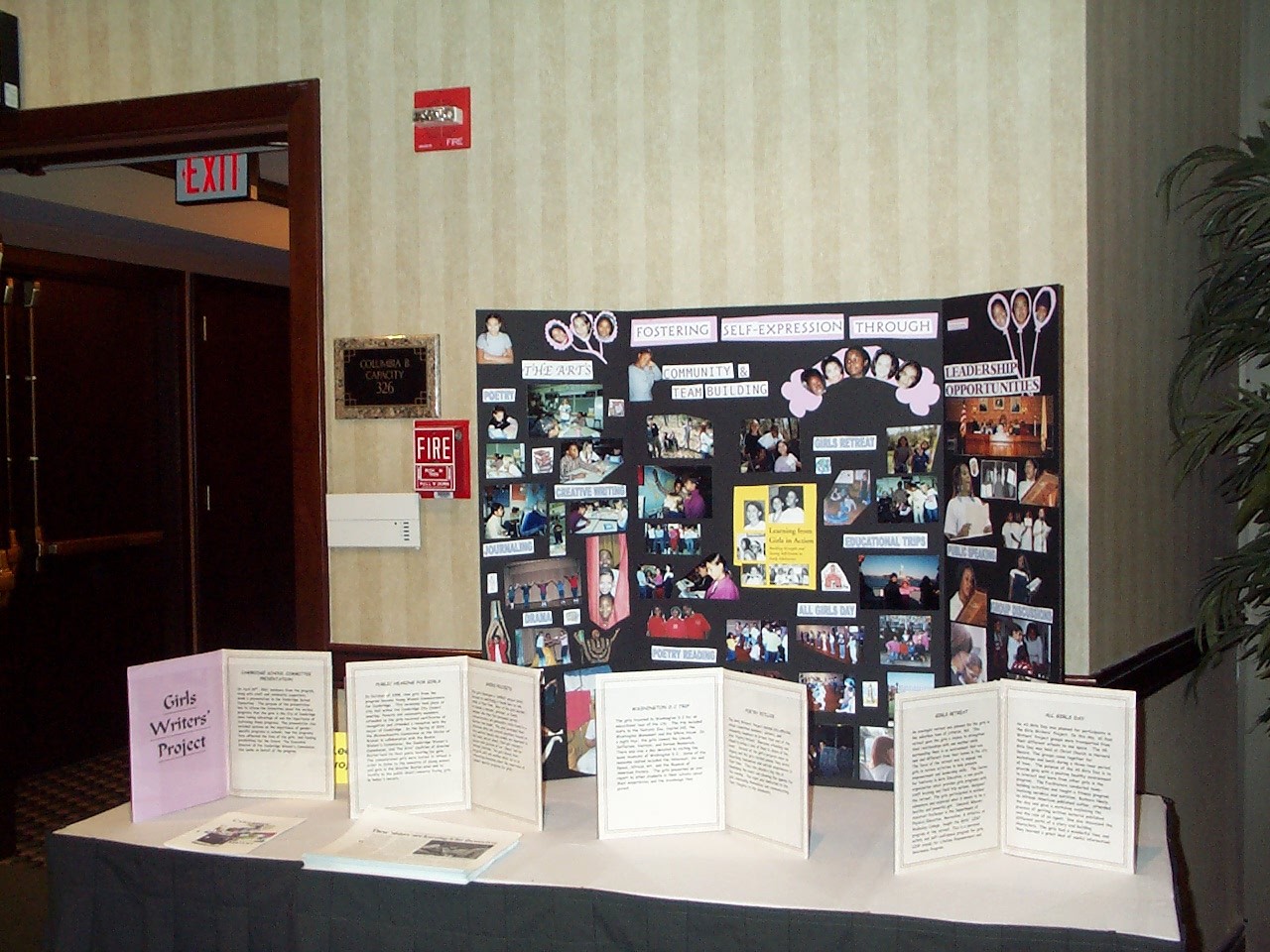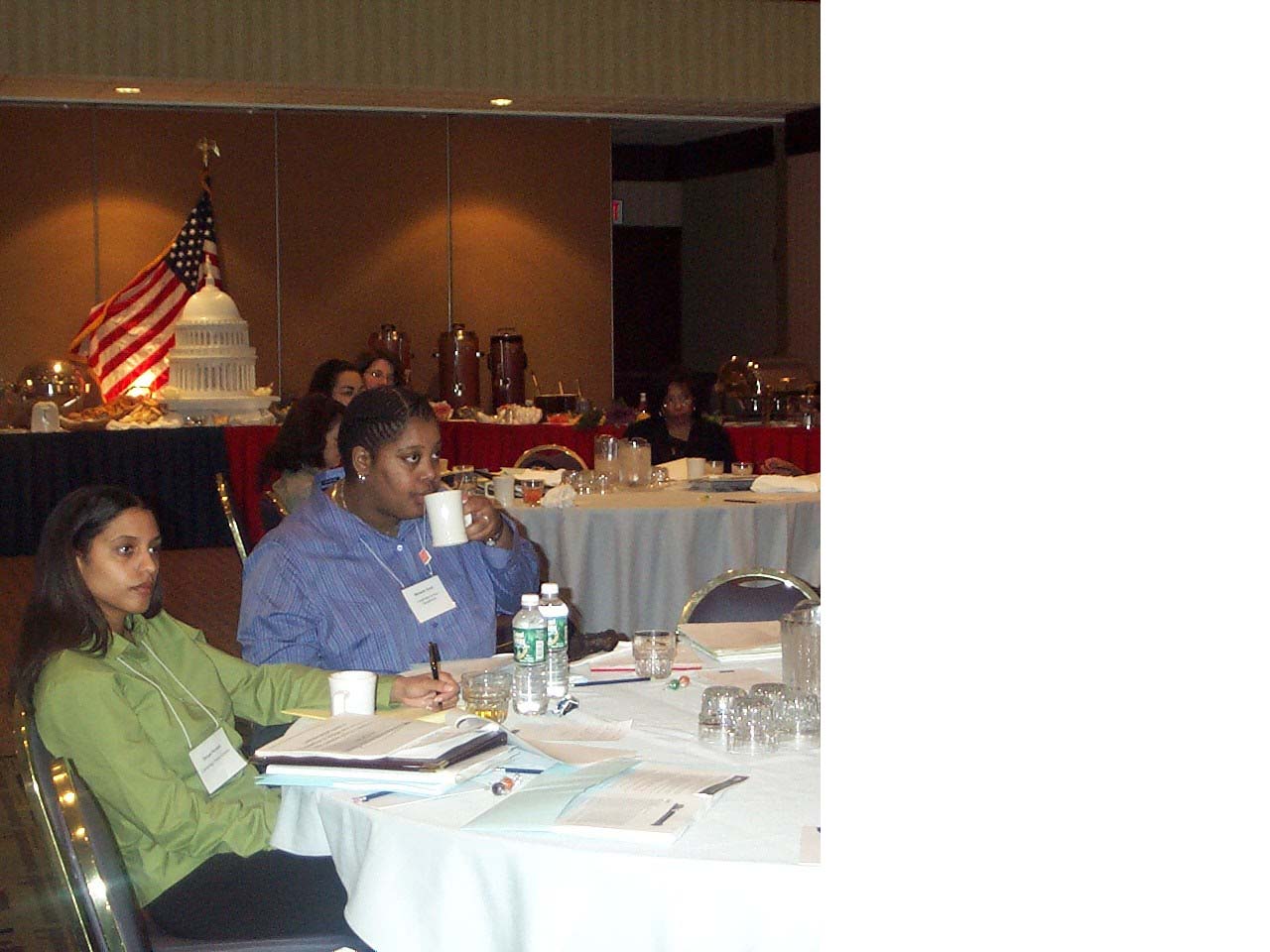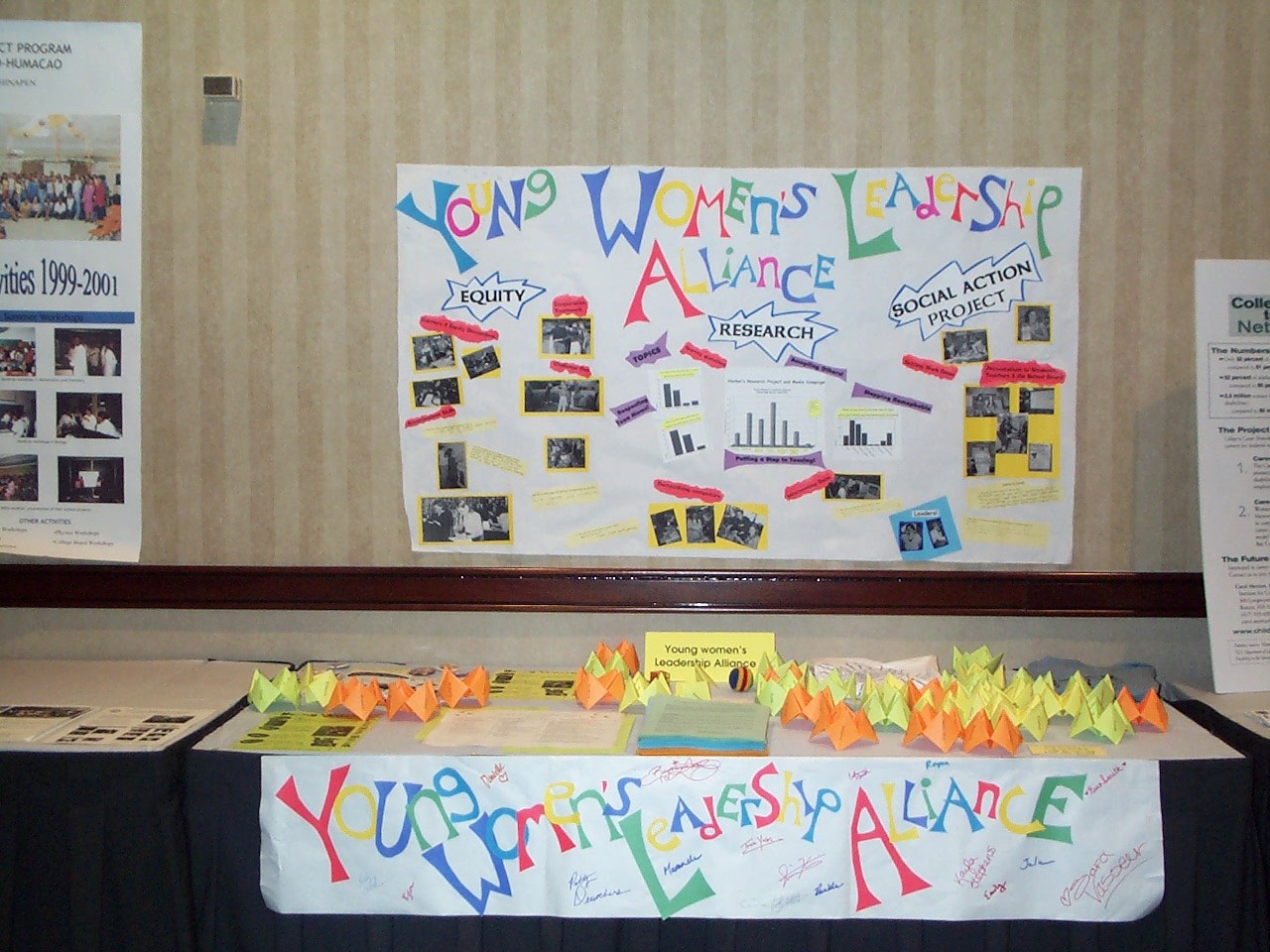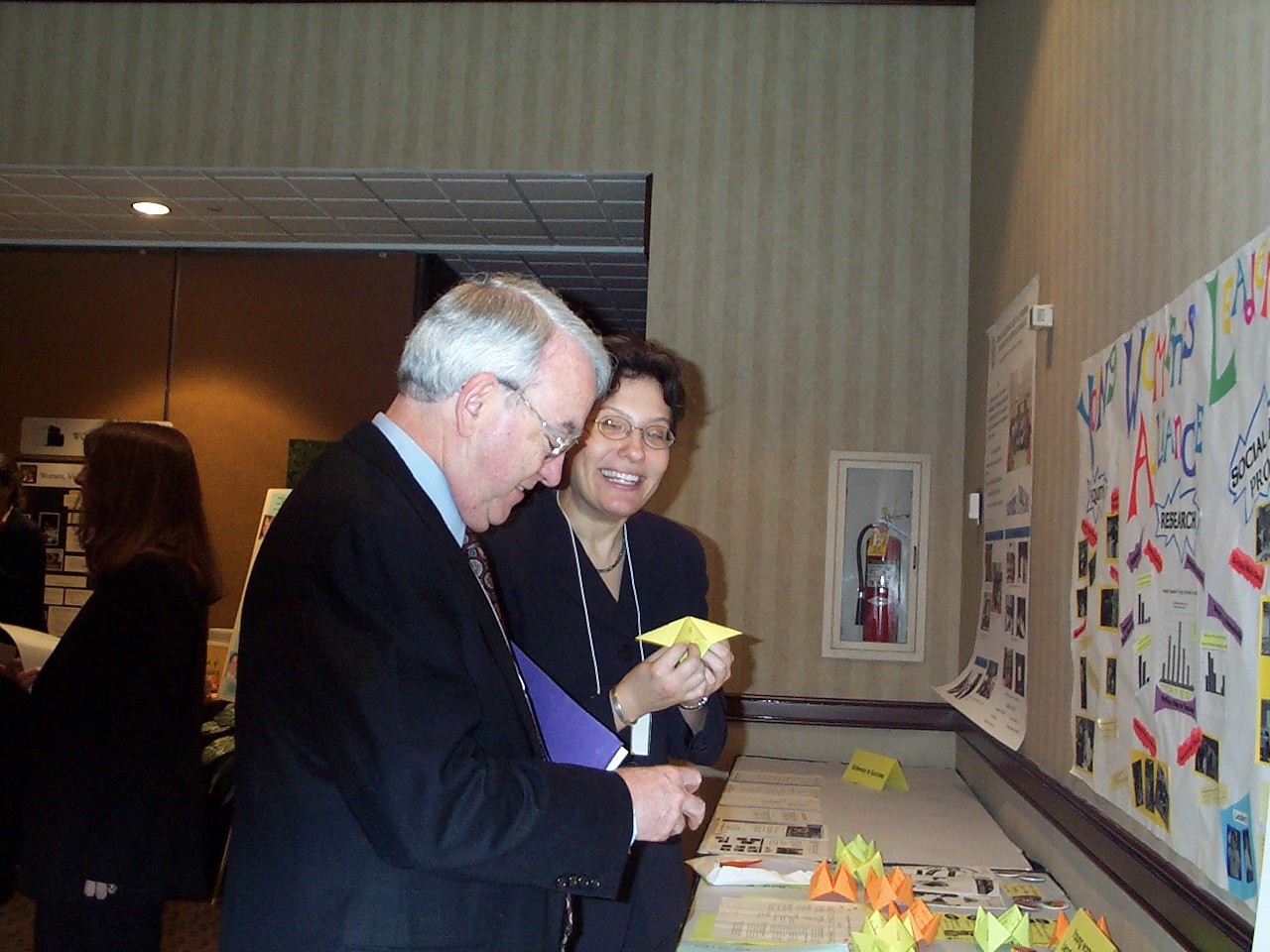This site is no longer active.
January 23-24, 2002
Leadership
Development
Click photos for larger view.
Access for Young Women Project
Forest Hills, New York
|
Expo
display
|
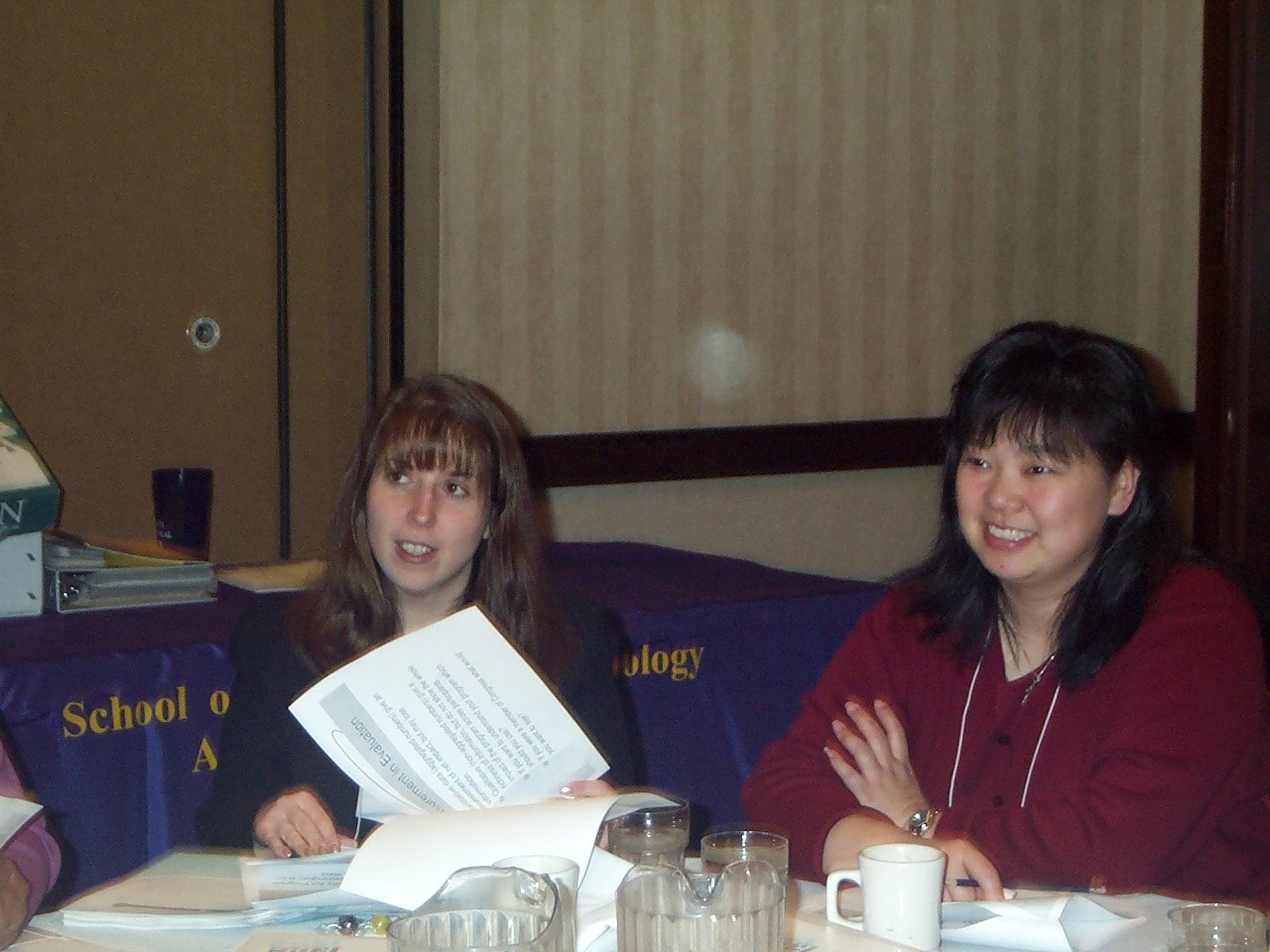 |
|
|
Forest
Hills Community House Educational Coordinator Sheryl Ross-Scalzo
and Children & Teen Services Director Helena Ku
|
Children
& Teen Services Director Helena Ku and Forest Hills Community
House Assistant Executive Director Theresa Greenberg
|
A gender equity program for girls that addresses gender equity in education, especially for girls who suffer from multiple forms of discrimination. Girls participate in programs to enhance leadership skills, self-confidence, and self-esteem; learn to enjoy math and computer technology, and take part in SAT and high school entrance exam preparation classes; learn about nontraditional careers that offer higher pay; and meet role models in business, trade, and nontraditional academic programs. Primary audience: low- to moderate-income young women who are largely members of minority groups or new immigrants.
****
Girls Leadership Project
Cambridge, Massachusetts
|
Expo display
|
Project
Director Danya Ferraro and Project Coordinator Michelle Scott (from
the Cambridge Public Schools)
|
This project is developing a model for promoting gender equity that places girls center stage in assessing and improving their schools. This collaborative effort between the Cambridge Public School System and the Cambridge Women’s Commission has established a program at five of the system’s fifteen elementary schools. At these schools, 60 girls in grades 5 to 8 participate in weekly workshops designed to help them find their personal and academic strengths and to more fully understand gender equity issues. These girls have been inducted as commissioners of the City of Cambridge’s Young Women’s Commission, a subcommittee of the Commission on the Status of Women. In that role they formulate an annual gender equity report of their own design, serve as advisors to the Superintendent of Schools and to the School Committee, and ensure that their recommendations are implemented.
This four-year project (1998-2002) asks girls to define leadership for
themselves and provides leadership training based on their ideas; supports
and cultivates the cultural and social strengths that girls already have;
and uses girls’ personal and private writings as a foundation for
learning skills for a public audience. Parental involvement is a critical
component of the project’s design.
****
Young Women’s Leadership Alliance
Santa Cruz, California
|
Expo
display
|
ETR
Associates Program Coordinator Beth Meyer and San Mateo County
Office of Education Administrator Peter Burchyns
|
The Young Women’s Leadership Alliance in Santa Cruz, California, is an effort to engage high school girls at three schools in the Santa Cruz School District in activities to identify and address gender equity issues. The five-year project (2000-2005) has three components: building equity awareness through interactive workshops on the barriers to educational and career advancement, conducting equity research to measure and document areas of local inequity, and taking action for equity in which the girls focus on creating systemic change in their schools based on their research findings.
The project is a collaboration between Education, Training and Research Associates, a nonprofit organization, and the Santa Cruz City School District, Harbor High School, Santa Cruz High School, Soquel High School, She Rocks, and the Santa Cruz Commission for the Prevention of Violence Against Women. The program is designed to have an impact at three levels: the 450 girls directly involved in the leadership groups, all students at these schools, and the overall school and district policies and actions in the area of gender equity in education.
The following outcomes are expected for the participants in the program:
-
assertiveness to speak up about issues of inequity, to be a leader, and to mentor peers to reach their potential
-
optimism that they have a range of choices for future careers
-
self-confidence that they possess marketable skills such as science, math, and technology
-
awareness of inequity; the skills to identify barriers for women, cultural minorities, and those with physical disabilities; knowledge of how gender; and role attitudes influence options
-
strategies for overcoming barriers to careers and education
-
perceptions of support and encouragement, including positive role models, adults with women they can talk about equity, and increased alliances with other girls
In its second year, early indications show that the project is meeting its objectives, particularly those related to the girls themselves. Data collected from participants, including pre- and post-test surveys, weekly reactions, and interviews with a subgroup after completion of the program suggest that girls are experiencing an increase in assertiveness and school leadership as well as marketable skills. It is still too early to tell about the impact on school climate and school programs and policies.
Publications | Women of Achievement | News
Links | Contact Us | Calendar of Events | Recursos en Espanol
Home
Gender Equity Works for All
WEEA
Equity Resource Center
EDC
55 Chapel Street
Newton, MA 02458-1060
This
site is no longer active.
Site questions and comments:genderdiversities@edc.org

